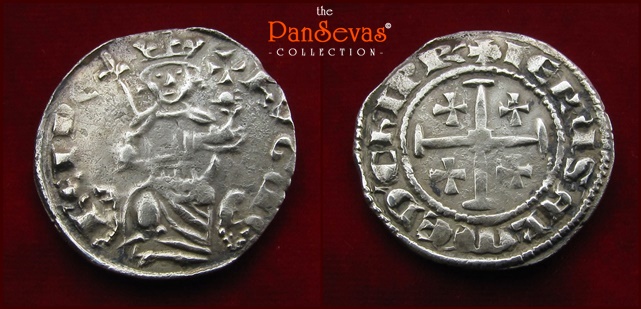Ledra was an ancient city-kingdom located in the centre of Cyprus where the capital city of Nicosia is today. It was established in 1050 BC but by Hellenistic times (330 BC) it had dwindled to a small village. At times, it had been subject to Assyrian rule.
According to tradition, the city was rebuilt by "Leucus" around 300 BC or 200 BC, and named after him as "Leucoton" or "Lefkotheon". In Byzantine times, the town was also referred to as Λευκωσία (Lefkosia) or as Καλληνίκησις (Kallenikesis).
After the destruction of Salamis, the existing capital of Cyprus, by Arab raids in 647, Nicosia became the capital of the island around 965, when Cyprus rejoined the Byzantine Empire. The Byzantines moved the island's administration seat to Nicosia primarily for security reasons as coastal towns were often suffering from raids. From that point on it has remained as the capital of Cyprus.
According to tradition, the city was rebuilt by "Leucus" around 300 BC or 200 BC, and named after him as "Leucoton" or "Lefkotheon". In Byzantine times, the town was also referred to as Λευκωσία (Lefkosia) or as Καλληνίκησις (Kallenikesis).
After the destruction of Salamis, the existing capital of Cyprus, by Arab raids in 647, Nicosia became the capital of the island around 965, when Cyprus rejoined the Byzantine Empire. The Byzantines moved the island's administration seat to Nicosia primarily for security reasons as coastal towns were often suffering from raids. From that point on it has remained as the capital of Cyprus.
Modern location: Nicosia, Cyprus

Obverse: Hugh seated facing, holding scepter and globus; B to left.
Reverse: Jerusalem cross.
Diameter:
-
Die Orientation: -
Weight: -
Die Orientation: -
Weight: -
Lusignan Kingdom of Cyprus.
Hugh IV (1293?96 – 10 October 1359) was crowned as King of Cyprus at Saint Sophia Cathedral, Nicosia, on 15 April or 25 April 1324. In the same year, on 13 May, he was crowned at Saint Nicholas Cathedral, Famagusta as Titular King of Jerusalem (as Hugh II).
In 1344, he joined a league with Venice and the Knights Hospitaller which burnt a Turkish fleet in Smyrna and captured the city. In 1345 the allies defeated the Turks at Imbros by land and sea, but Hugh could see little benefit for his kingdom in these endeavors and withdrew from the league.
During his reign, he was strict about issues relating to justice. He was well educated and had an interest in art, literature, and philosophy and had much knowledge of Latin literature.
Hugh IV resigned the crown to his son, Peter I (rather than his grandson Hugh) in 1358, and died on 10 October 1359 in Nicosia.
Metcalf, Crusades 756; CCS 69.
